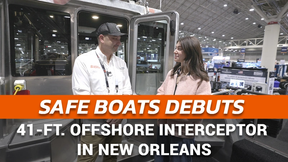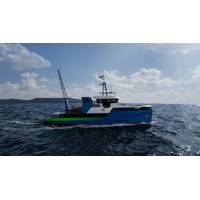Exploring Autonomous Solutions with Dynautics

SAFE Boats Debuts 41-ft. Offshore Interceptor in New Orleans

 December 2025
December 2025

As 2025 comes to a close, MTR explores trends for 2026 and the newest products and vessels in the maritime industry.
Read the Magazine
This issue sponsored by:

AI Speeds Rubbish Detection

Marine Technology Reporter is the world's largest audited subsea industry publication serving the offshore energy, subsea defense and scientific communities.
Subscribe
Marine Technology ENews is the subsea industry's largest circulation and most authoritative ENews Service, delivered to your Email three times per week
Subscribe for MTR E-news
Featured Companies
Tethys Robotics

Tethys Robotics AG is a Swiss company developing compact, highly automated underwater drones that transform inspection and mapping in challenging aquatic environments. Tethys Robotics redefines how inspections, mapping, and maintenance are conducted across sectors like hydropower…
R.M. Young Company

Founded in 1964, R.M. Young Company specializes in the development and manufacture of professional meteorological instruments renowned for their cost-effectiveness and reliability. Their precision weather instruments have earned global acclaim, underpinned by exceptional…



